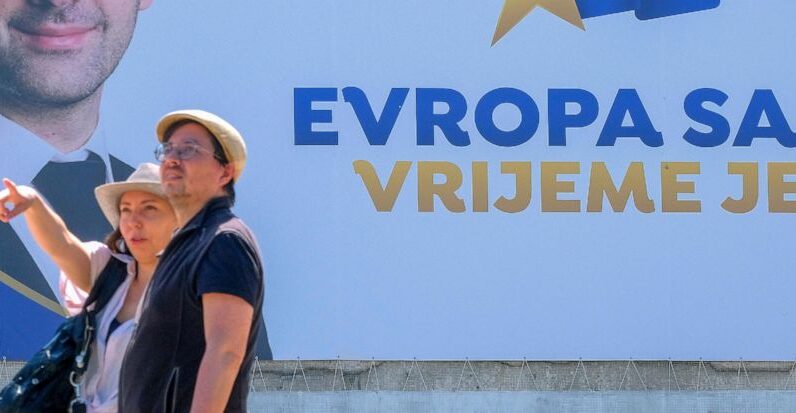
PODGORICA, Montenegro — Montenegro held early parliamentary elections on Sunday, a vote that could end deep political divisions and years of instability that have hampered the tiny NATO member on its path to joining the European Union.
Some 542,000 voters can choose from 15 parties and coalitions fielding candidates, ranging from staunchly pro-Western to pro-Serbian and pro-Russian groups.
Unlike previous elections, when the central point of the campaign was whether the country should lean towards the EU or closer to Russia and Serbia, the economy and living standards dominated the issues this year time
“Finally, we are deciding the quality of life, instead of east or west,” Tanja Bojovic, 38, said as she voted in the Montenegrin capital, Podgorica. “I hope for the victory of those who will lead us to a better life.”
The election is Montenegro’s first in more than 30 years without Milo Djukanovic, who has served almost continuously as the country’s prime minister or president since 2001. He lost a presidential election in April and has moved to a background in national politics.
Polls and analysts predicted that Europe Now, a newly formed centrist movement, would be the most likely to win votes, but without enough seats in the 81-seat parliament to form a new government on its own.
President Jakov Milatovic, who belongs to the Europe Now movement, has said that he hopes that “after the parliamentary elections, the new Assembly of Montenegro will reflect what is currently a new political reality in the country.”
The Democratic Party of Socialists, the party previously led by Djukanovic, experienced a decline in popularity after three decades of dominance and has a new leadership looking for a chance to make a comeback.
There were also candidates from the pro-Serbian and pro-Russian Democratic Front, a party seen as likely to emerge as a kingmaker in the formation of a future coalition government.
Political analyst Ana Nenezic, executive director of the Monitoring and Research Center, said the focus on the economy “is beneficial for society,” but promises of wage increases made by politicians “are not based on a real economy.”
He added that, according to the latest electoral forecasts, “I will be very surprised if we get a politically stable government.”
Djukanovic led Montenegro to independence from Serbia in 2006 and challenged Russia to join NATO in 2017. An alliance dominated by parties seeking closer ties with Serbia and Russia ousted the ruling Democratic Party of Socialists in the previous parliamentary elections, held in 2020.
The new ruling coalition, however, soon descended into chaos, stalling Montenegro’s path to the EU and creating a political deadlock. The government fell in a no-confidence vote last year, but remained in office for months because of the stalemate.
Montenegro, a picturesque country on the Adriatic Sea of about 620,000 people, was once seen as the first country to join the EU from the Western Balkans.
—-
Dusan Stojanovic contributed from Belgrade, Serbia
[ad_2]
Source link





